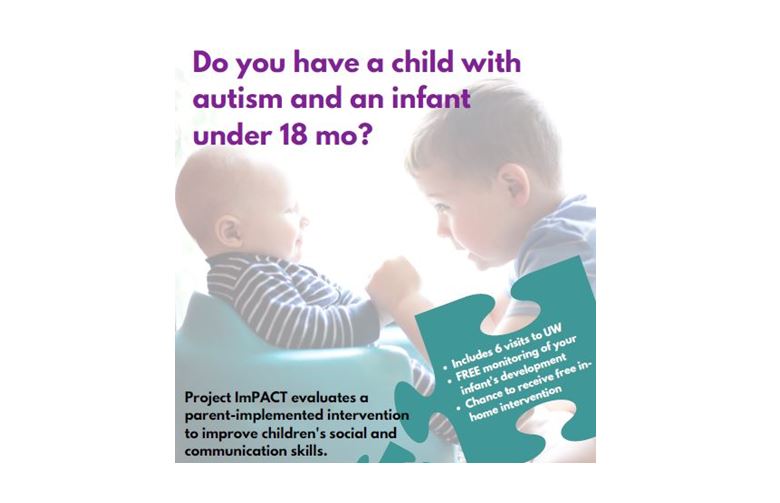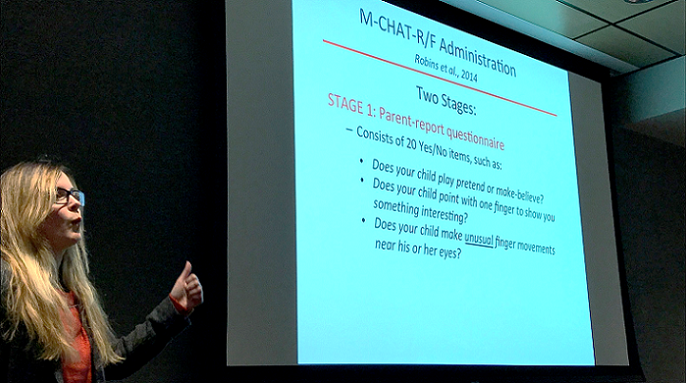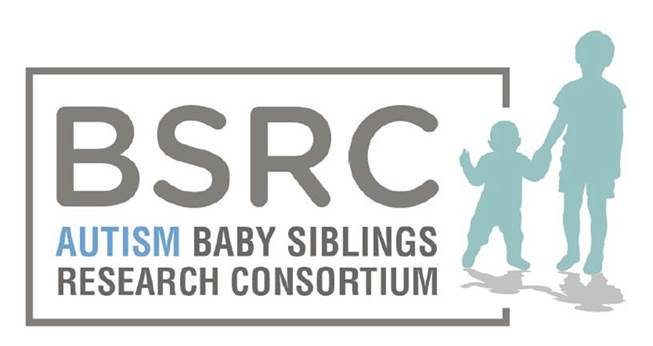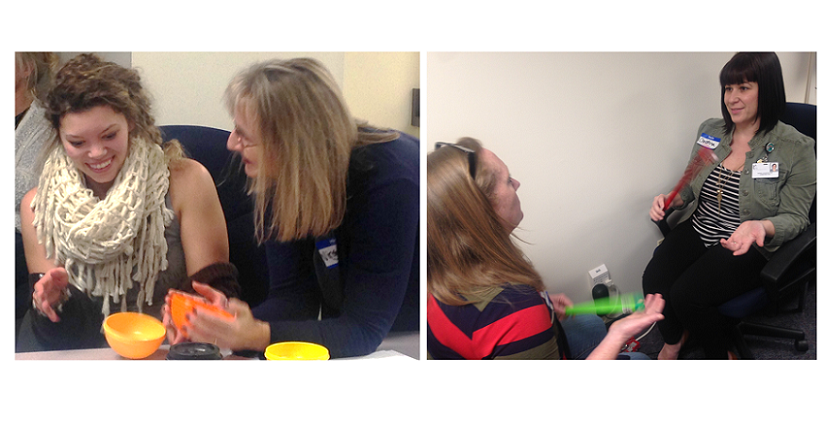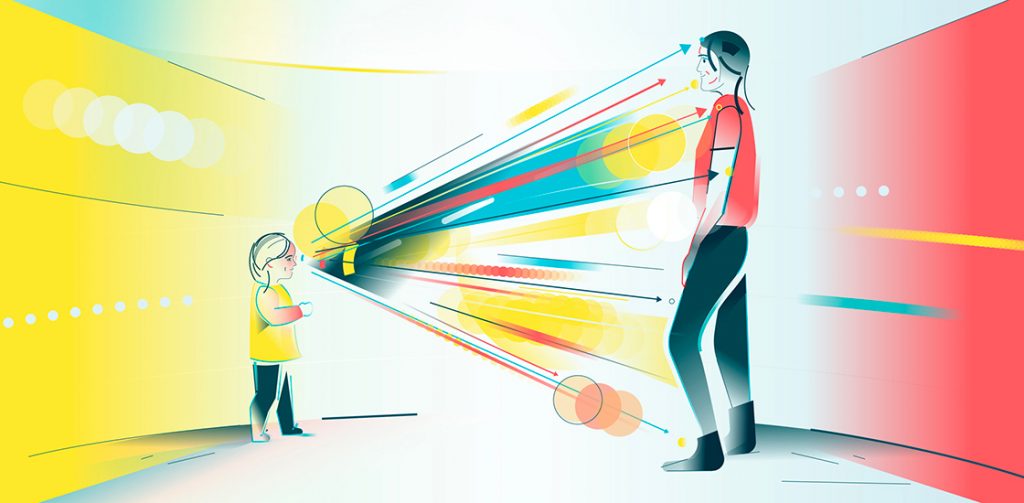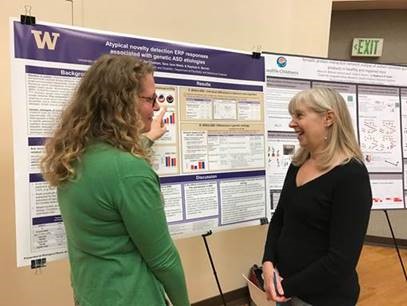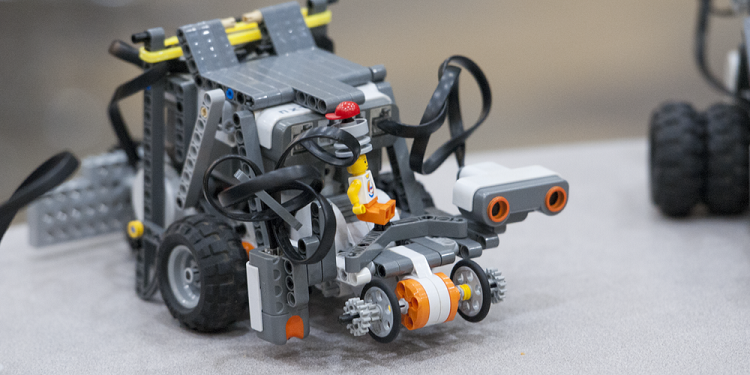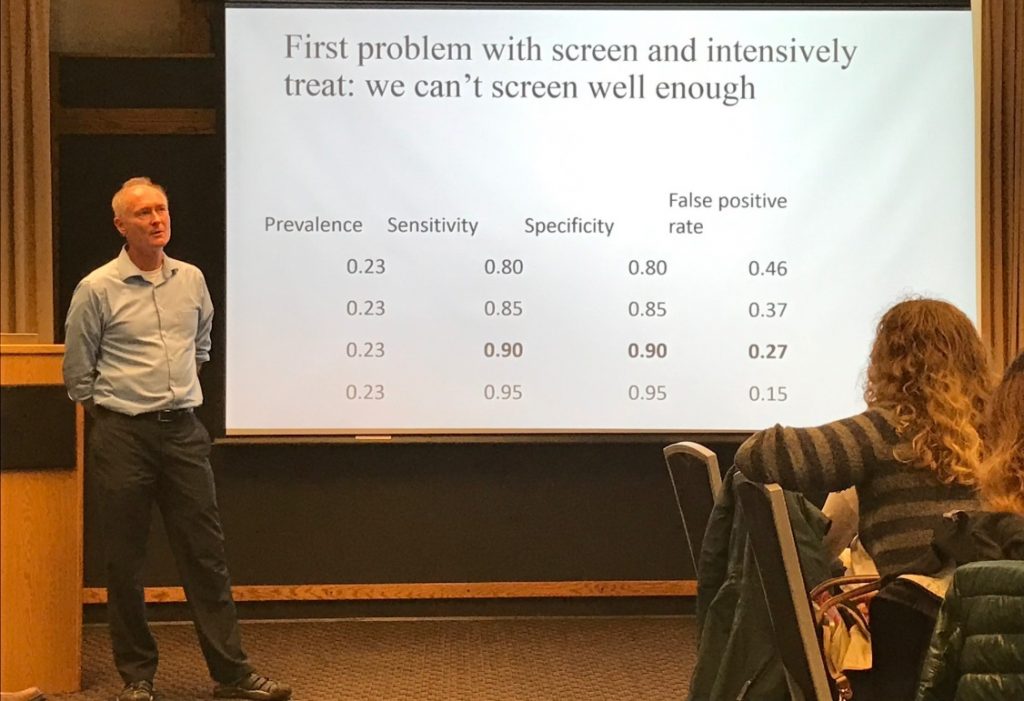Tune in to this free webinar with Dr. David Mandell to find out! Dr. Mandell is a professor of psychiatry and pediatrics at the University of Pennsylvania, where he also directs the Center for Mental Health Policy and Services Research. On Wednesday, March 29th at 12pm PST, he will discuss the history of federal and state regulations that influence the lives of people with autism, as well as present findings on how future healthcare and education policies should develop in order to improve quality of care. If you are interested in this unique educational opportunity, click here to register.
More exciting news from Sesame Street!
Sesame Street has announced they will soon be introducing a new Muppet who has autism! Her name is Julia, a 4-year-old girl with whose character, until now, has existed only in digital form. Her big debut on the show will air on PBS and HBO on April 10th. Sesame Street is known for its dedication to promoting social-emotional development in young children, through their colorful and engaging characters and their portrayal of sensitive issues such as self-esteem, conflict resolution, and acceptance of diversity. Adding Julia to the Muppet family is a deliberate effort to continue their tradition of helping children grow “smarter, stronger, and kinder.”
Fun fact #1: The puppeteer who brings Julia to “life” has a son with autism.
Fun fact #2: Dr. Stone serves on Sesame Street’s Autism Advisory Board.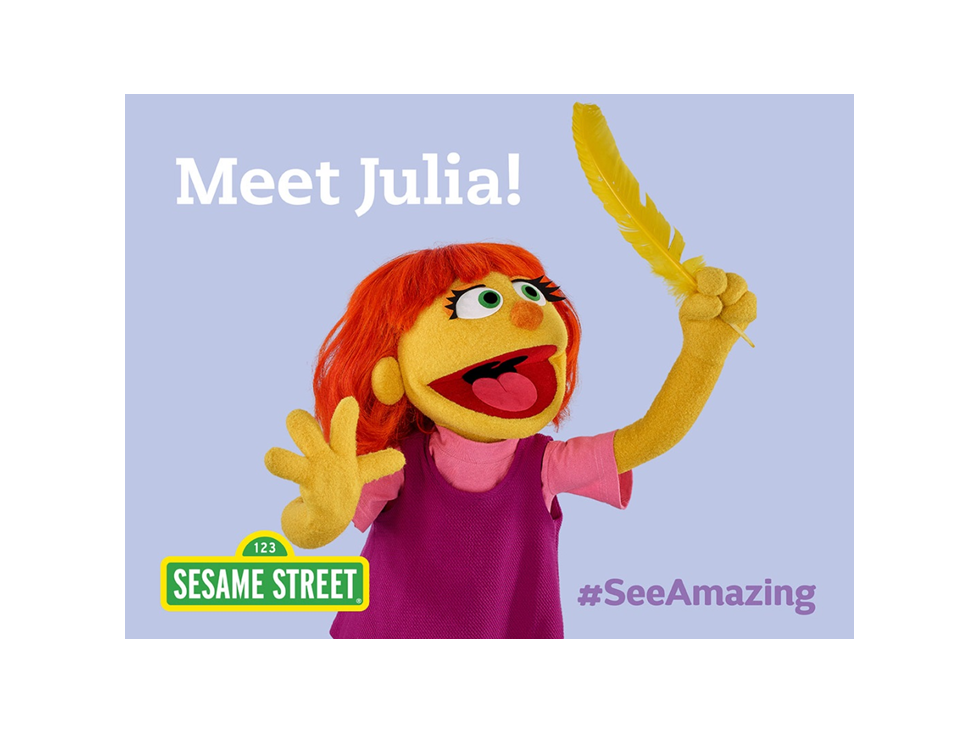
You Can Make an ImPACT!
The READi Lab is seeking Seattle-area families to participate in a study evaluating a parent-implemented intervention called ImPACT (Improving Parents as Communication Teachers). Our study will examine the effectiveness of ImPACT for increasing social and communication skills in infants between 12 and 18 months who have an older sibling with autism. If you (or someone you know) may be interested in this project, please call us at 206-543-2823 or email us at READiLab@uw.edu* for more information.
*Please be aware that we cannot assure confidentiality of email.
One County Down, Three More To Go!
Last week, the Screen-Refer-Treat (SRT) Study Team conducted its first workshop on the Online M-CHAT-R/F for primary care providers (PCPs) from 3 pediatric practices in Spokane County. The workshop covered topics including the early behavioral features of ASD, the use of the online M-CHAT-R/F screener at 18-month well-child visits, how to talk to parents about concerns (and respond when they present concerns), and provided up-to-date information about referral processes and local resources. All of the training workshops for participating PCPs and early intervention (EI) providers have been completed in Spokane County and now Yakima, Skagit, and Lewis County remain. We look forward to kicking off the next round of training workshops in Yakima County in April!
READi Lab Grad Students Rock!
Congratulations to three of our child clinical graduate students for their recent accomplishments! Colleen Harker (center) recently learned that she will be spending her clinical psychology predoctoral internship next year at UCLA, which was her first choice. Sarah Edmunds (right) and Lizzy Karp (left) each had first-authored manuscripts accepted for publication in the Journal of Autism and Developmental Disorders. Sarah’s study involved a collaboration with researchers at Georgia Tech to investigate whether eyeglass-mounted camcorders can provide more accurate information about children’s eye-eye gaze with adults, compared with tripod-mounted camcorder; you can read about it in Spectrum News’ review or the scientific abstract. Lizzy’s study examined a “baby sibs” sample to identify the extent to which parental well-being (i.e., parenting stress and efficacy) and toddler’s behavior (i.e., language and social communication) contribute to parent’s concerns about their toddler’s development; to learn more about Lizzy’s study, you can read the scientific abstract.
Way to go, Sarah, Lizzy, and Colleen!
Exciting News for the Baby Siblings Research Consortium!
As many of our READi Lab families know, our lab participates in a large international consortium of researchers who study the developmental course and outcomes of infants who are at risk for ASD by virtue of having an older sibling with ASD. Members of the Baby Siblings Research Consortium (BSRC) contribute deidentified behavioral assessment information to a database that now contains information from over 5,000 infants. This database has led to important discoveries related to the recurrence risk of autism in younger siblings, the stability of diagnosis, and the outcomes of infant siblings who do not develop ASD. The Autism Science Foundation has recently announced that they will provide $63,000 over the coming year to support the operation of the BSRC database so that we may continue our important work. Many thanks to the Autism Science Foundation for this funding. To read more, follow this link.
Looking for family fun?
ParentMap recently published a listing of 10 special outings for Seattle kids and families with special needs. The list includes activities such as AMC’s sensory-friendly films, and early opening hours at the Pacific Science Center for families of children with autism! Click here to see the full list!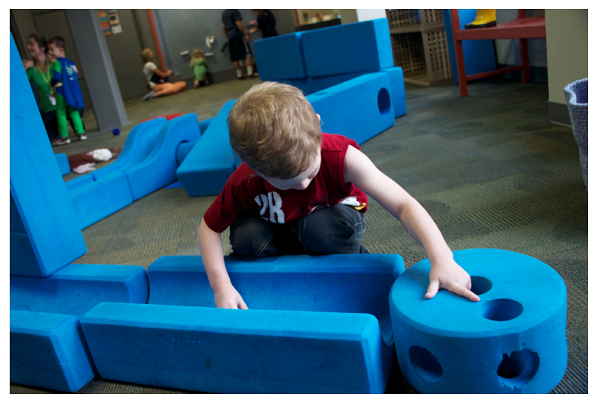
Check out the upcoming IEP workshop!
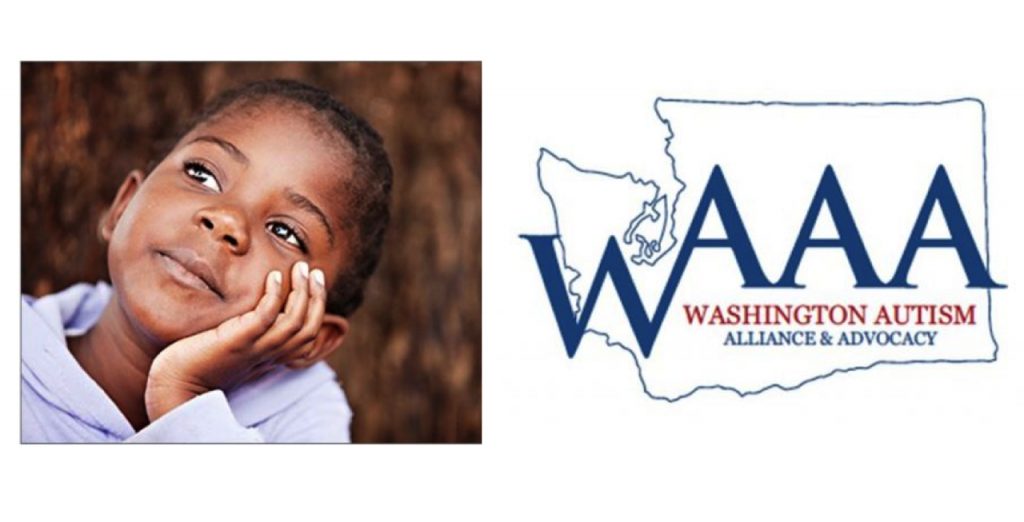 Washington Autism Alliance & Advocacy (WAAA) is sponsoring a full-day workshop on Saturday, March 25 for families of children with special needs. Five special education lawyers who work in the Puget Sound area will provide information about setting up an Individualized Educational Program (IEP) to develop appropriate services for your child. The workshop will be held in Bellevue, and the cost is $35 for parents, with scholarships available for eligible families. This should be a great opportunity to learn about special education law and advocacy! Click here for more information.
Washington Autism Alliance & Advocacy (WAAA) is sponsoring a full-day workshop on Saturday, March 25 for families of children with special needs. Five special education lawyers who work in the Puget Sound area will provide information about setting up an Individualized Educational Program (IEP) to develop appropriate services for your child. The workshop will be held in Bellevue, and the cost is $35 for parents, with scholarships available for eligible families. This should be a great opportunity to learn about special education law and advocacy! Click here for more information.
Want to Participate in an Online Autism Research Study?
Do you have an infant younger than 3 months old? Are you interested in online research studies? Our colleague, Dr. Klaus Libertus at the University of Pittsburgh, is actively searching for families to participate in a new online study with 3-month-old babies who have an older sibling with autism. He is conducting an observational study via videochat that examines motor and language development in babies. If you are interested, or if you know someone who might be interested in participating, please refer to the contact information pictured below. You may also visit the lab’s Facebook page at: https://www.facebook.com/OnlineBabyLab/.
Our First STAT Workshop for the Screen-Refer-Treat Project!
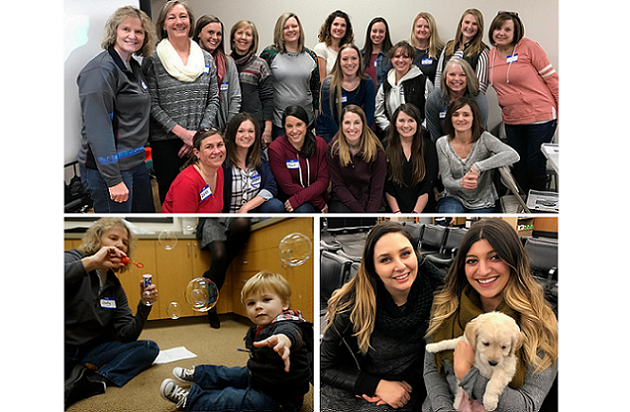
What better way to spend a Saturday than at a STAT training?! That’s exactly what an enthusiastic group of Early Intervention (EI) providers from Spokane’s Youthful Horizons and Achieve Center did this past weekend. In addition to learning how to use the STAT, providers at this expanded SRT workshop learned strategies for talking to parents about autism red flags. Some providers also got hands-on practice administering the STAT with some adorable volunteers! To cap the day off, Roya and Allycen fell in love with a very huggable miniature goldendoodle who was on his way to Seattle to meet his new family. Our SRT team is excited to return to Spokane tomorrow to provide 3 more training workshops over the next 3 days!
Starting out with a bang in Spokane!
On Tuesday, the Screen-Refer-Treat Study’s training phase kicked off with a Reciprocal Imitation Training (RIT) workshop at the Spokane Guild’s School and Neuromuscular Center. The workshop covered the key components of RIT and strategies for implementing RIT and providing parent coaching. The 22 Early Intervention (EI) providers in attendance engaged in lively discussion and participated in hands-on activities through role-playing and live demonstrations with families who kindly volunteered their time. We look forward to conducting our 6 upcoming training workshops for EI providers and Primary Care Providers throughout Spokane County over the next few weeks!
A Local Hero
Josh Carlsen, a high school sophomore with ASD, created a “must see” video describing his struggles with autism. Josh wrote the script for his brave and inspirational video and a fellow high school student helped to film it. The 2-minute video will be shown at the Martin Luther King Jr. assembly at Nathan Hale High School later this week. Check it out at the link below, and note that Josh really appreciates it when viewers leave him comments!
Also, we would love to share more stories from our friends that celebrate Martin Luther King Jr.’s message of kindness, understanding and hope. If you have something to share, please send us a note at readilab@uw.edu.
Catherine Dick, MS, Graduate Student
Catherine completed her PhD training in UW’s Clinical Psychology program in July 2023. She completed her predoctoral internship at Oregon Health Sciences University and is completing her postdoctoral fellowship at Seattle Children’s.
Savings Guide for People with Disabilities
CouponChief.com recently contacted us to let us know that they have created a guide for retail savings for families and individuals with disabilities and are excited to share this information with families in our community. This guide provides discounts as well as access to tools and special services. It includes deals on assistive technology, transportation help, and library services, just to name a few! Click here to check out the guide.
Happy Holidays from the UW READi Lab!
Understanding eye gaze in toddlers with ASD
Why do children with ASD show reduced levels of eye contact? Is it because they have difficulty understanding the meaning conveyed by eyes? Or because they experience direct eye contact as aversive or over-arousing? A new study led by Warren Jones at the Marcus Autism Center in Atlanta sought to answer this question by studying toddlers with ASD, typical development, and developmental delays. The researchers “cued” the children to look at different parts of a woman’s face during a video in which she spoke in an emotionally engaging manner.
Results revealed that the toddlers with ASD spent less attention looking at the woman’s eyes during the “free viewing” portion of the experiment. However, when cued to look at her eyes, their performance was similar to that of the neurotypical group, in that they shifted their gaze toward the eyes as rapidly, and did not shift their gaze away any sooner. This pattern suggests that toddlers with ASD may look at eyes less often because of “indifference” rather than “discomfort.” However, as the authors note, this study does not discount the self-reports of many adults with ASD, who describe discomfort and anxiety associated with direct eye contact. Additional research is needed to further understand this phenomenon. To learn more about the study, check out Spectrum New’s article.
Susan Bookheimer visits UW
Dr. Susan Bookheimer, who is the Joaquin Fuster Professor of Cognitive Neuroscience in UCLAs Department of Psychiatry and Biobehavioral Sciences, visited the UW Center on Human Development and Disability (CHDD) earlier this week. She presented some of her research on imaging genetics in autism and also judged posters competing for CHDD’s Biological Basis of Autism Collaborative Research Area Award. In the photo above, Dr. Caitlin Hudac (left), a postdoctoral fellow in Dr. Raphe Bernier’s Lab, discusses her study findings with Dr. Bookheimer (right). Fun fact: Wendy first met Susan in 2006 during an Autism Speaks-sponsored visit to Taiwan, where they were part of a team presenting on the state of the science of autism!
New Special Olympics Sport: Robotics!
It was an exciting weekend at the Pacific Science Center, with the first ever Special Olympics Unified Robotics Championship! Unified Robotics is a program in which local Seattle students with and without intellectual disabilities work together to design robots. The program’s inspiration comes from Kendall Foster, a high-school teen with autism who couldn’t find a robotics team to join. Her sister Delaney worked together with a high school teacher to develop the Unified Robotics program, modeled after Special Olympics Unified Sports. Check out the full article to learn more about the event and the unique advantages students with intellectual abilities bring to their robotics teams.
Looking for sensory-friendly holiday fun? We’ve got you covered!
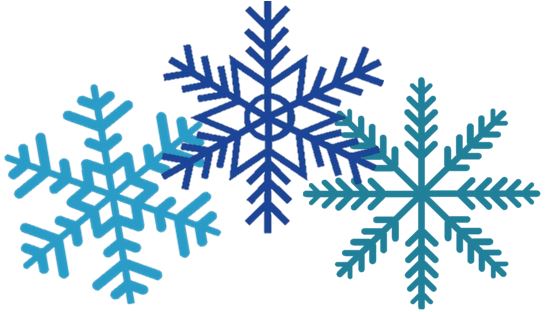
We have hand-picked some family-friendly ideas inspired by the magic of the holidays. From a visit to Santa, to a handy list of sensory-friendly toys, we hope this list inspires some holiday fun!
- A sensory friendly visit to the North Pole! Come visit Santa in a relaxing environment. Each family will receive a complimentary photo.
- Sensory friendly movies! Movies will be playing at various AMC theatres throughout the holiday season! Movies include Moana, Fantastic Beasts and Where to Find Them, and Rogue One: A Star Wars Story.
- Sensory friendly concerts at the Seattle Symphony! Enjoy a concert that is tailored to children with ASD and other special needs. Upcoming shows include “Two Cats” and “The Old Magician”.
- Sensory gifts that everybody will love! With the holidays fast-approaching, check out some cool toys for kids on your “nice” list.
- A special night of play! The Hands On Children’s Museum will be hosting an event for families of children with autism or other special needs. Children and their families will be able to explore the museum in a less over-stimulating setting with families who may share similar experiences.
Ending a Seattle sabbatical with a bang!
Yesterday, Dr. Paul Yoder gave a fantastic presentation on “Helping Children with Autism Learn to Talk,” as part of CHDD’s Consortium on Early Childhood Intervention (CECI) speaker series. In his presentation he described “value added” predictors of speech in children with ASD, emphasizing the importance of children’s intentional communication, diversity of consonants, diversity of object play, and caregivers’ linguistic responses to child leads. This lecture marked his final day on sabbatical at UW before his return to Vanderbilt University. Dr. Yoder has collaborated with Dr. Stone on multiple projects, and is lead PI on our current ImPACT Study. The READi Lab is grateful for the opportunity to spend time with Dr. Yoder over the past 4 months, and we wish him a safe return to Nashville!

